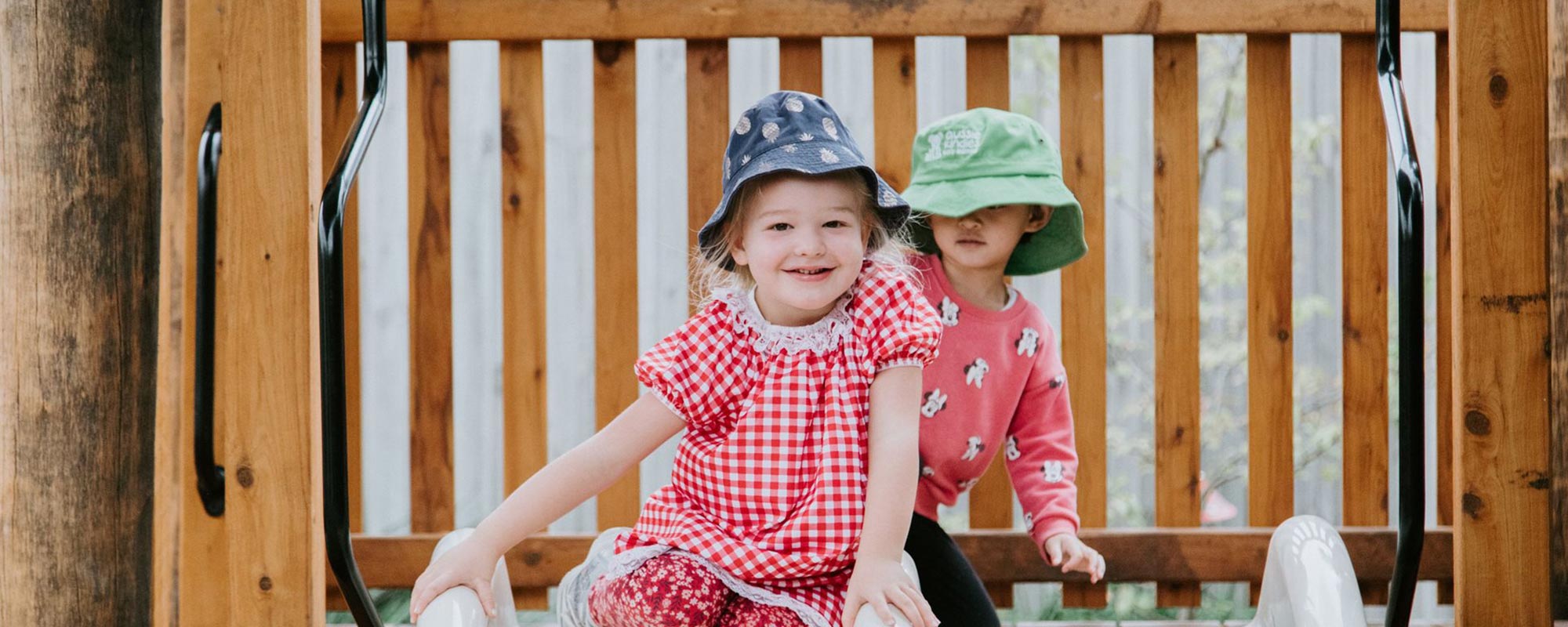
Starting school is an exciting time in a child’s lifelong learning journey. Before they start, a child should ideally have developed a range of basic skills and knowledge to help them transition smoothly into the school environment. Affinity Education has developed a Lifelong Learning School Readiness Checklist, which is a list of skills that have been identified through collaboration and research as important for being 'school ready'.
Read on as we share what skills and challenges your child should be able to achieve or attempting to achieve by the time they commence school.
1. Emotional Confidence
Children’s learning and engagement happens best when they feel confident and capable. Positive dispositions for learning and relationships are created when children are loved, nurtured, recognised and encouraged and when provided with opportunities for self-reflection and expression. Secure attachments are crucial in establishing a strong sense of self and identity.
Examples of emotional confidence include:
- Adjusts to change or new routines
- Labels feelings
- Persists with challenging tasks
- Tries new or unfamiliar activities
- Is excited about starting school and coming to preschool/kindergarten
- Separates easily from parents (mostly)
- Can express wants and needs to others
2. Social Connectivity
Children belong first to a family and community, and then to social and friendship groups. Connecting with children of their own age and different ages supports the development of respect, empathy, acceptance and understanding of others and allows them to practice negotiation, turn-taking, language and expressive skills. Having a strong moral and social foundation influences relationships in the future.
Social connectivity is demonstrated in the following ways:
- Plays alone for short periods
- Joins others for play independently
- Seeks familiar peers and has established some friendship groups
- Waits for a turn
- Can regulate behaviour and understand basic rules and expectations
- Shares play equipment
- Can work with others well in groups experiences
3. Foundational Learning
Children are naturally inquisitive and curious and have a desire to learn and practice. When learning is focused around their interests, children are more likely to be engaged. The foundations for learning success can be supported through relevant, real and practical opportunities to practice numeracy, literacy and research. Acknowledging children‘s efforts in learning inspires intrinsic motivation.
Before they start school, your child should be competent in the following:
- Knows full name and recognises own name in print
- Correctly labels a range of colours and shapes
- Follows verbal instructions
- Can count to 20 and recognise numerals to 10
- Uses representational drawing as well as creative writing in their work
- Is interested in writing and letter formation, including some letters and may write name
- Holds writing tools correctly and uses scissors
- Can stay focused on an activity or task for 10 minutes when interested
- Understand basic concepts (i.e. up/down, hot/cold, sorting, classifying)
- Can recount simple events or sequence of a story
4. Physical Health and Wellbeing
Children’s confidence is enhanced when they feel capable and in control. Building physical independence means children can contribute to their own health, safety and well-being and can become self-reliant. Fundamental movement skills, healthy living and nutrition and mindfulness contribute holistically to wellbeing and habits developed early will be carried through to the future.
Your child should be competent in these skills relating to physical health and wellbeing before they start school:
- Dresses and undresses with little help (not shoelaces)
- Toilets independently and washes own hands
- Shows imagination and creativity in play
- Feeds self and opens lunch box/food packaging
- Takes care of own belongings (i.e. puts hat away in own bag)
- Manages daily movement tasks confidently including running, jumping, climbing and negotiating physically challenging obstacles
- Shows awareness of respectful behaviours
- Has age appropriate language including vocabulary, grammar, comprehension and can express thoughts and ideas to others
- Understands basic concepts of personal health and safety
- Engages in sensory experiences
Early Education Sets Children Up For Life
In Australia, it is generally recommended that children attend two years of preschool before they start primary school, as this provides them with a solid foundation in terms of language, early literacy and numeracy, independence and concentration as well as social skills and self-regulation.
A study conducted by the University of Melbourne in 2017 found that children who attend a high quality early learning program in the year before school are up to 40 percent ahead of their peers by the time they reach Year 3 (Everyone Benefits, 2017). Parallel studies identify that two years of preschool has even greater benefits than one year (Pascoe and Brennan, 2017 and Mitchell Institute, 2016). Lifting Our Game, for example, found that children who attend high quality early education in the two years before school were better prepared for the transition to school, achieved higher at school, had a more positive attitude to school and learning, and were more likely to graduate high school. Furthermore, the more frequently and consistently the child attended the higher the outcomes.
Enrol in a School Readiness Program
Aussie Kindies' bachelor qualified teachers and experienced educators are trained in the Lifelong Learning Curriculum's School Readiness Program. This is a government approved preschool/kindergarten program that gives your child the very best start to primary school. It has been specifically designed for children aged 3-5 years and aims to stimulate young minds, build confidence, resilience and positive self image, and supports children’s transition to school, all while setting them up for a lifetime love of learning.